Diversity Events Calendar
September
Hispanic/Latinx Heritage Month

An official celebration of those American citizens whose ancestry can be traced back to Spain, Mexico, Central and South America and the Caribbean. The tradition of the Hispanic/Latinx Heritage celebration started out as a week-long event in 1968. Twenty (20) years later, in 1988, the celebration expanded to dedicate a whole month starting and ending in the middle of the month and inclusive of the Day of the Dead (“Dia De Los Muertos“) on November 2nd, to represent a traditional event in Mexico paying homage to loved ones who have pasted on.
Hispanic/Latinx Heritage Month pays tribute to the generations of Hispanic/Latinx Americans who have positively influenced and enriched our nation and society. The celebration will take place between September 15th and October 15th and up to November 2nd. The 15th marks as the independence day of five Latin American countries: Costa Rica, El Salvador, Guatemala, Honduras and Nicaragua. While Mexico, Chile, and Belize follow shortly after on the 16th, 18th and 21st respectively.
September 6-8 (sundown to sundown): Rosh Hashanah, the Jewish New Year celebration, marking the creation of the world.
September 15-16 (sundown to sundown): Yom Kippur, the holiest day on the Jewish calendar, a day of atonement marked by fasting and ceremonial repentance.
September 18: International Equal Pay Day, celebrated for the first time in September 2020, represents the longstanding efforts towards the achievement of equal pay for work of equal value. It further builds on the United Nations’ commitment to human rights and against all forms of discrimination, including discrimination against women and girls.
October
Domestic Violence Awareness Month

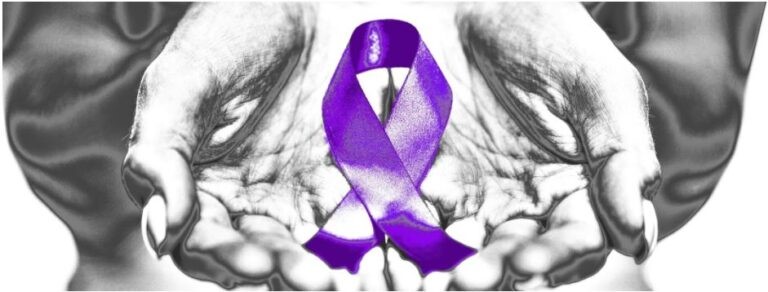
Domestic Violence Awareness Month takes place every October. It evolved from a Day of Unity first observed in October, 1981 by the National Coalition Against Domestic Violence. The intent was to connect advocates for survivors of abuse across the nation who were working to end violence against women and their children. The Day of Unity soon became a special week when a range of activities were conducted at the local, state and national levels, and has since grown to become a federally observed month of awareness and action on domestic violence.
Across the country, families and friends of victims have gathered during Domestic Violence Awareness Month to remember and honor their loved ones who have lost their lives at the hands of a person they once loved and trusted.
October 1: Native American Women’s Equal Pay Day. The aim is to raise awareness about the wider-than-average pay gap between Native American women and White men. Native American women are paid 57 cents for every dollar paid to white men.
October 10: World Mental Health Day. First celebrated in 1993, this day is meant to increase public awareness about the importance of mental health, mental health services, and mental health workers worldwide.
October 11: National Coming Out Day (U.S.). For those who identify as lesbian, gay, bisexual or transgender, this day celebrates coming out and the recognition of the 1987 march on Washington for gay and lesbian equality.
October 11: National Indigenous Peoples Day, an alternative celebration to Columbus Day, gives recognition to the indigenous populations affected by colonization.
October 20: International Pronouns Day seeks to make respecting, sharing, and educating about personal pronouns commonplace. Each year it is held on the third Wednesday of October.
October 29: Latinx Women’s Equal Pay Day. The aim is to raise awareness about the wider-than-average pay gap between Latinx women and White men. Latinx women are paid 54 cents for every dollar paid to white men.
November
Native American Heritage Month

November is Native American Heritage Month, or as it is commonly referred to as American Indian and Alaska Native Heritage Month. This month is a time to celebrate rich and diverse cultures, traditions, and histories and to acknowledge the important contributions of Native people.
November 19: International Men’s Day emphasizes the important issues affecting males, including health issues that affect males, improving the relations between genders, highlighting the importance of male role models and promoting gender equality. This holiday is celebrated in over 70 countries.
November 20: Transgender Day of Remembrance, established in 1998 to memorialize those who have been killed as a result of transphobia and to raise awareness of the continued violence endured by the transgender community.
November 25: Thanksgiving in the United States. It began as a day of giving thanks for the blessing of the harvest and of the preceding year.
November 26: Native American Heritage Day, held annually the Friday after Thanksgiving, encourages Americans of all backgrounds to observe and honor Native Americans through appropriate ceremonies and activities. The day was signed into law by George W. Bush in 2008.
December
National Human Rights Month

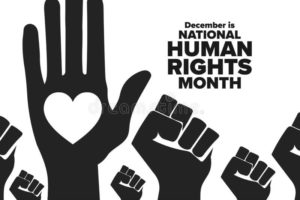
December recognizes National Human Rights Month. This month and every month to follow, everyone in the United States is encouraged to come together and stand up for equality, justice, and the dignity of all humans. December is a time to honor the Universal Declaration of Human Rights, an international document stating the fundamental rights and freedoms to which all human beings are entitled. These rights include freedom from discrimination, the right to equality, and the right to be considered innocent until proven guilty.
December 1: World AIDS Day, commemorating those who have died of AIDS, and to acknowledge the need for a continued commitment to all those affected by the HIV/AIDS epidemic.
December 3: International Day of Persons with Disabilities, designed to raise awareness in regards to persons with disabilities in order to improve their lives and provide them with equal opportunity.
December 10: International Human Rights Day, established by the United Nations in 1948 to commemorate the anniversary of the Universal Declaration of Human Rights.
December 25: Christmas Day, the day that many Christians associate with Jesus’ birth.
November 28-December 6: Hanukkah, a Jewish holiday that is celebrated around the world for eight days and nights. Hanukkah celebrates the victory of the Maccabees, or Israelites, over the Greek-Syrian ruler, Antiochus, approximately 2,200 years ago.
December 26-January 1: Kwanzaa, an African-American holiday started by Maulana Karenga in 1966 to celebrate universal African-American heritage.
January
National Poverty Awareness Month
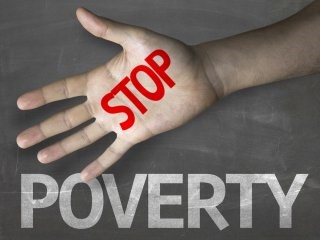

January is National Poverty Awareness Month and it gives us at WCSU an opportunity to become more aware of those in need and the ways we can take action to combat poverty. There are over 40 million people living in poverty in the United States. Poverty creates inter-generational issues, causes health issues due to food insecurity, stress, and lack of access to care, and contributes to school-age and university students under-performing and/or missing school.
January 4: World Braille Day, observed in order to raise awareness of the importance of braille as a means of communication in the full realization of the human rights for blind and partially sighted people. Celebrated on Louis Braille’s birthday, the inventor of braille.
January 18: Martin Luther King Jr. Day commemorates the birth of Martin Luther King Jr., the recipient of the 1964 Nobel Peace Prize and an activist for nonviolent social change until his assassination in 1968.
January 27 (sundown to sundown): The International Day of Commemoration and Holocaust Remembrance Day is a time to remember the victims of the Holocaust. The anniversary of the liberation of the Auschwitz death camp in 1945 and U.N. Holocaust Memorial Day. This time is to also “mourn the loss of lives, celebrate those who saved them, honor those who survived, and contemplate the obligations of the living.” — Former President Barack Obama.
February
Black Heritage/History Month
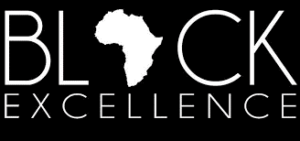
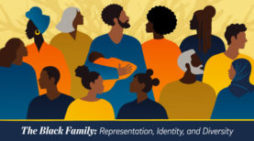
February marks Black Heritage/History Month, a federally recognized, nationwide celebration that calls on all Americans to reflect on the significant roles that African-Americans have played in shaping history in the United States. February marks Black Heritage/History Month, a tribute to African-American men and women who have made significant contributions to America and the rest of the world in the fields of science, politics, law, sports, the arts, entertainment, and many other fields.
While Black Heritage/History Month is synonymous with prominent figures such as Martin Luther King Jr., Harriet Tubman, Rosa Parks, Muhammad Ali, Jackie Robinson, Langston Hughes, Maya Angelou, Marian Anderson and President Barack Obama, there are countless other African-Americans who’ve made a profound impact in history: self-made millionaire Madam C.J. Walker, world-renowned sculptor Edmonia Lewis, carbon filament light bulb inventor Lewis Howard Latimer, open-heart surgeon Daniel Hale Williams, science-fiction writer Octavia E. Butler, and “Father of Black History” Carter G. Woodson, who lobbied extensively to establish Black Heritage/History Month as a nationwide celebration, among many others.
February 1: National Freedom Day, which celebrates the signing of the 13th Amendment that abolished slavery in 1865.
February 11: Asian-American Women’s Equal Pay Day. The aim is to raise awareness about the pay gap between Asian-American women and White men. Asian-American women are paid 90 cents for every dollar paid to white men.
March
Women's History Month
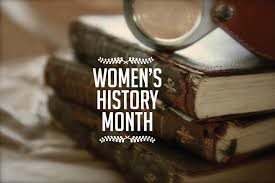
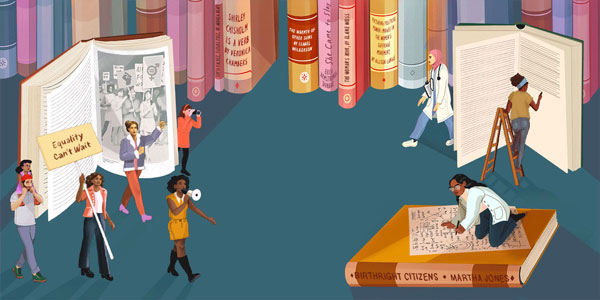

A nationally recognized celebration throughout March, Women’s History Month originates back to 1981, Women’s History Month originates back to 1981, when Congress authorized and requested President Reagan to proclaim the week starting March 7, 1982, to be Women’s History Week. The week in March was selected to commemorate an 1857 strike for better pay and working conditions held by women working in a garment factory. In 1987, the National Women’s History Project successfully petitioned for Congress to designate the month of March to be Women’s History Month.
Every March, WCSU finds way to celebrate the contributions of history-making women to our society. From how it began to important dates in March, please support and learn more about this month-long celebration at WCSU.
March 13-April 15: Deaf History Month. This observance celebrates key events in deaf history, including the founding of Gallaudet University and the American School for the Deaf.
March 17: St. Patrick’s Day, a holiday started in Ireland to recognize St. Patrick, the patron saint of Ireland who brought Christianity to the country in the early days of the faith.
March 21: International Day for the Elimination of Racial Discrimination, observed annually in the wake of the 1960 killing of 69 people at a demonstration against apartheid pass laws in South Africa. The United Nations proclaimed the day in 1966 and called on the international community to redouble its efforts to eliminate all forms of racial discrimination.
March 25: International Day of Remembrance of the Victims of Slavery and the Transatlantic Slave Trade is a United Nations international observation that offers the opportunity to honor and remember those who suffered and died at the hands of the brutal slavery system. First observed in 2008, the international day also aims to raise awareness about the dangers of racism and prejudice today.
March 27-April 4: Passover, an eight-day Jewish holiday and festival in commemoration of the emancipation of the Israelites from slavery in ancient Egypt.
March 28: Palm Sunday, a Christian holiday commemorating the entry of Jesus into Jerusalem. It is the last Sunday of Lent and the beginning of the Holy Week.
March 31: International Transgender Day of Visibility, celebrated to bring awareness to transgender people and their identities as well as recognize those who helped fight for rights for transgender people.
April
Sexual Assault Awareness Month
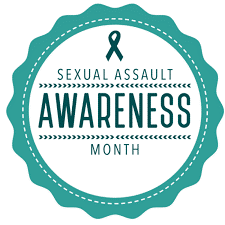


Sexual Assault Awareness Month is an annual designation observed in April. During this month, WCSU raises awareness about sexual violence in Danbury and educates our community on how to prevent it and be active bystanders in prevention and awareness.
 Month at WCSU
Month at WCSU
Our planet is filled with a rainbow of races and religions — all equal in every way. It doesn’t matter if you don’t understand them all or even know they exist, but it matters that you accept everyone and do not judge anyone as less than worthy. We are all in this together, and our ignorance of other’s beliefs is no excuse for intolerance in any form. As we enter April, WCSU would like everyone to take some time to celebrate Diversity Month.
April 2: World Autism Awareness Day, created to raise awareness of the developmental disorder around the globe.
April 13: Equal Pay Day, an attempt to raise awareness about the raw wage gap, the figure that shows that women, on average, earn about 80 cents for every dollar men earn. The date moves earlier each year as the wage gap closes. Equal Pay Day began in 1996 by the National Committee on Pay Equity as a public awareness event to illustrate the gender pay gap.
April 22: Earth Day promotes world peace and sustainability of the planet. Events are held globally to show support of environmental protection of the Earth.
April 23: The Day of Silence, during which students take a daylong vow of silence to protest the actual silencing of lesbian, gay, bisexual and transgender (LGBTQ+) students and their straight allies due to bias and harassment.
May
Asian Pacific American Heritage Month

May is Asian American - Pacific Islander (“AAPI”) Heritage Month – a celebration of Asians and Pacific Islanders in the United States. AAPI Heritage commemoration was first proposed in 1977 to observe the immigration of the first Japanese to the United States (May 7, 1843), and the completion of the transcontinental railroad, constructed mainly by Chinese immigrant workers (May 10, 1869). In 1978, President Carter made it an annual week-long event and President George H.W. Bush extended the proclamation to include the entire month of May.
In the face of increasing anti-Asian bias, WCSU acknowledges and combats its roots in our society and on our campuses. This month we look to highlight resilience of our community, our enduring public service for all Asian-Americans, and the actions we can take to move forward at WCSU.
May 5: Cinco de Mayo, a Mexican holiday commemorating the Mexican army’s 1862 victory over France at the Battle of Puebla during the Franco-Mexican War (1861-1867). This day celebrates Mexican culture and heritage, including parades and music performances.
May 17: International Day Against Homophobia, Transphobia and Biphobia, a global celebration of sexual-orientation and gender diversities.
May 21: World Day for Cultural Diversity for Dialogue and Development, a day set aside by the United Nations as an opportunity to deepen our understanding of the values of cultural diversity and to learn to live together in harmony.
June
Pride Month
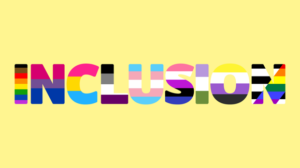
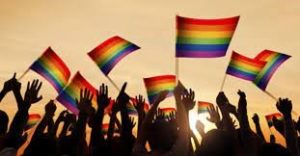

June is Pride Month which is established to recognize the impact that Lesbian, Gay, Bisexual, Transgender, Queer, Intersex, Asexual (“LGBTQIA”) individuals have had on the world. LGBTQIA groups celebrate this special time with various pride parades, picnics, parties, memorials for those lost to hate crimes and HIV/AIDS, and other group gatherings.
Pride Month is celebrated as a tribute to those who were involved in the Stonewall Riots. With parades, festivals, and concerts, there’s always some way for you to get involved at WCSU as well as learn some important social history along the way.
June 15: Native American Citizenship Day, commemorating the day in 1924 when the U.S. Congress passed legislation recognizing the citizenship of Native Americans.
June 19: Juneteenth, also known as Freedom Day or Emancipation Day. It is observed as a public holiday in 14 U.S. states. This celebration honors the day in 1865 when slaves in Texas and Louisiana finally heard they were free, two months after the end of the Civil War. June 19, therefore, became the day of emancipation for thousands of African-Americans.
Last Sunday in June: Lesbian, Gay, Bisexual, Transgender (LGBT) Pride Day in the United States. It celebrates the Stonewall Riots on June 28, 1969.

